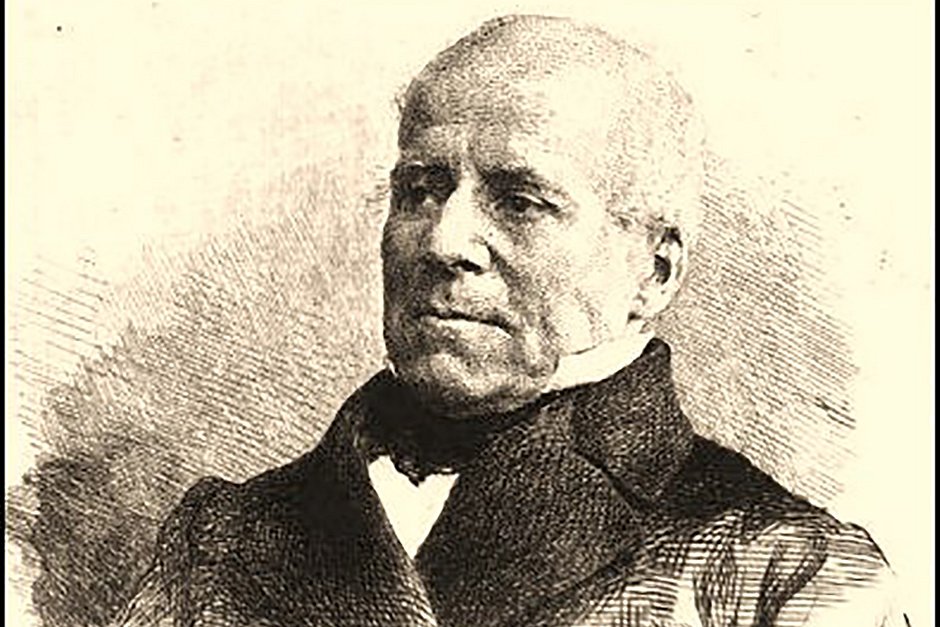
Marginalia:A Marxist Analysis of Marxism?
On the occasion of the 200th anniversary of Karl Marx’ birth it has become a compulsory exercise in Germany to honor the great German in a spirit of paradoxical and inappropriate patriotism. Anyone who wants to be taken seriously and be considered sane and moderate in academia, the media and politics, must have a positive relationship to the “intellectual pioneer” and most famous “revolutionary.” In order to raise this magazine above any suspicion, it should be noted: Karl Marx didn’t get everything wrong. Of all things it is an element of Marxist analysis that helps to explain the posthumous acclamation across the supposedly bourgeois spectrum.
But to put into perspective the obligatory praise of the master from Trier: Whatever wasn't wrong with Marx, isn't from Marx. His analysis adopted an element of certain bourgeois precursors, to whom, of course, he could not pay tribute – for he bet everything on another ‘class’ that would, in historical determinism, overcome the bourgeoisie. Thus he twisted an important insight into a deterministic formulation: (Social) being determines consciousness. In this intensification the facts are falsified, because fortunately nothing is preordained in human action. But in essence he was right: For most people, ideas, i.e. contents of consciousness, serve to rationalise and legitimise their interests, i.e. their social existence.
This insight goes back to the great French classical liberals Charles Dunoyer and Charles Comte, who have only their first name in common with their plagiarist, but were otherwise pre-Marxist anti-Marxists. What Marx interprets as a class struggle is the conflict of interests between the rulers and the ruled. Those whose consciousness is unwilling and unable to carry legitimizing ideas of domination will sooner or later lose domination. Therefore, there is always a convergence between domination and the ideas that legitimize it. According to the later analogy of a Marxist pragmatist, it is the position in front of or behind the rifle barrels which separates the classes.
Neither Marx's appreciation nor the criticism of appreciation has anything to do with the merits or shortcomings of Marxist thought. After the Second World War, Marxist ideas were among the supposedly victorious ones. This helped to legitimize ideas of power. The discrepancy with reality led to the collapse of centrally planned economies. However, after this failure only the most naive and cynical held fast to classical Marxism; all the quite clever and well-meaning companions, who had seen Marxism as an instrument of questioning obsolete and unjust structures, woke up. Marxist lyricism thus became the refuge of power cynics and their useful idiots.
The original essence of Marxism, the deterministic prophecy, was replaced. A progressive, modernist, technology- and industry-friendly economy became a reactionary, romanticising ideology. After the market economy had ultimately proved superior to ‘scientific materialism’ in all materialistic categories, Marxism performed a post-materialist transformation – a desperate attempt to preserve sovereignty of interpretation and a claim to power.
Neo-Marxism is not modern, but ‘postmodern;’ it is directed against enlightenment, reason and progress. In order to legitimise it, it needs modern victim groups, which are being successively cultivated ideologically, with declining marginal returns: Beginning with the most lucrative reservoir of resentment, neo-Marxism has now passed through Third World, nature, women and races. The latest victim groups are becoming ever smaller and more absurd, as a result of which its legitimization of power threatens to lose touch with the majority of the population. The goal of neo-Marxist legitimization of power is to direct just enough displeasure to legitimize the secular saviors of the political class, but equally not too much, so as not to lose control. Analyses that are as ambiguous as possible but full of words, phrases that are as empty of meaning as possible and alliances that are as large as possible, are intended to help create the barely sufficient basic mood of subservience without alternative, through cheap victimhood.
Marx didn’t get everything wrong. He didn't think much of Marxists himself. But the keynote speakers and felicitators are in danger of appearing as cynics or useful idiots, pledging themselves to the ruling class, in a cheap way since this pledge bears no disadvantages – a solidarity delivered with a wink.
Certainly, similar pledges were once a brave sign of recalcitrant, radical and revolutionary characters. They may have been wrong in a lot of ways, but everyone has a right to err. The ruling class has appropriated the revolutionary, and being infatuated with him today demonstrates ideological reliability.
Pre-Marxist class theory did not differentiate deterministically according to origin, but functionally according to relationship to rulership. The only universal class difference is that between the beneficiaries and victims of violence, between the looted and the looters, between citizens and the state apparatus, between those whose offers can be rejected and those who live at the expense of others.
Having degenerated into one of the legitimizing ideologies of the total state, neo-Marxism serves the maintenance of fiction, through which everyone tries to live at the expense of everyone else. In reality, of course, this does not go well, so the actual balance of power and rulership must be disguised by sophistic rhetoric. Postmodern scepticism of modernity and reason, which was actually justified after the terrible last century, provided the perfect veil for this.
Translated from eigentümlich frei, where the original article was published on 8th July 2018.




